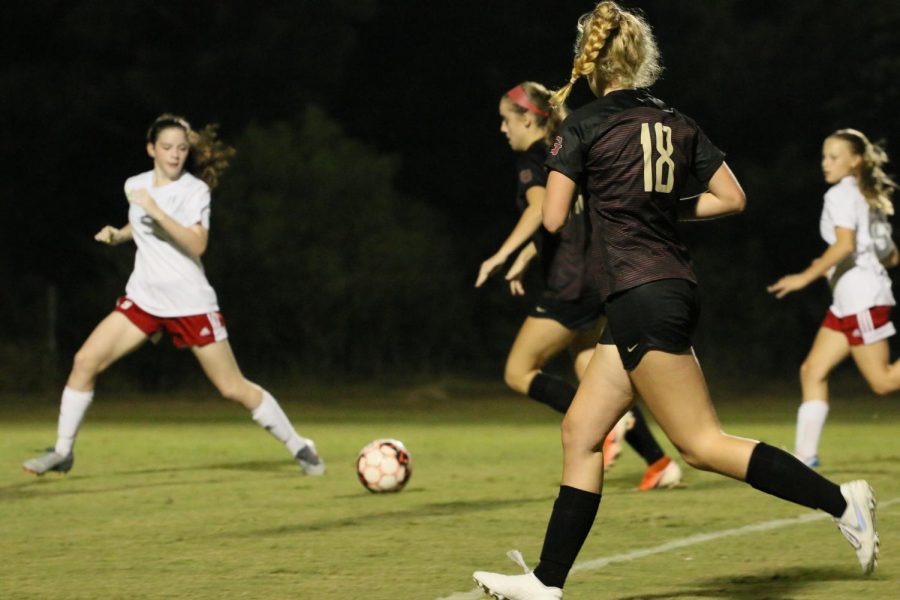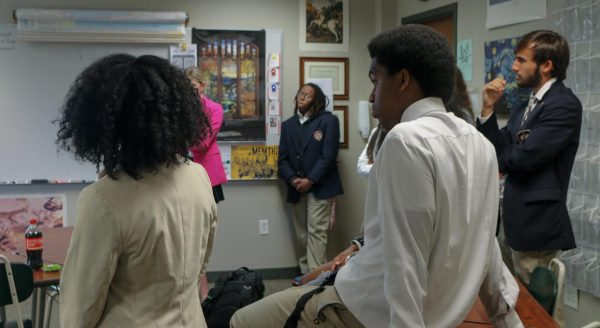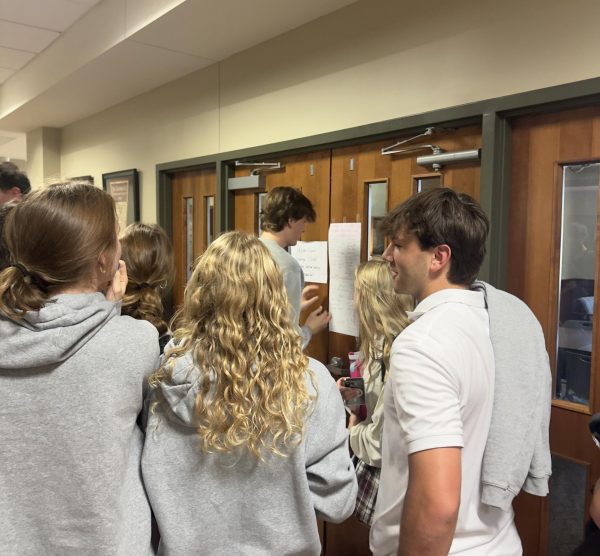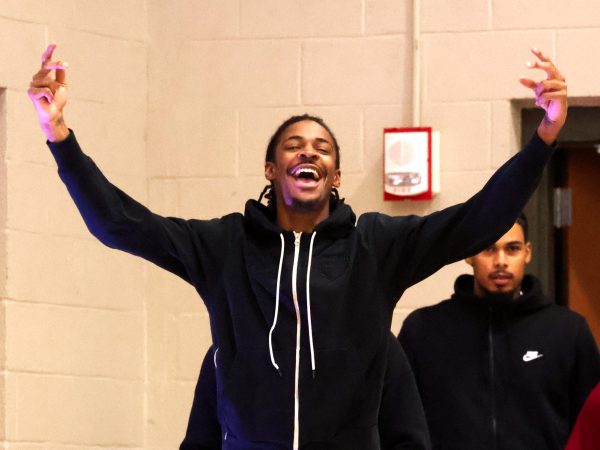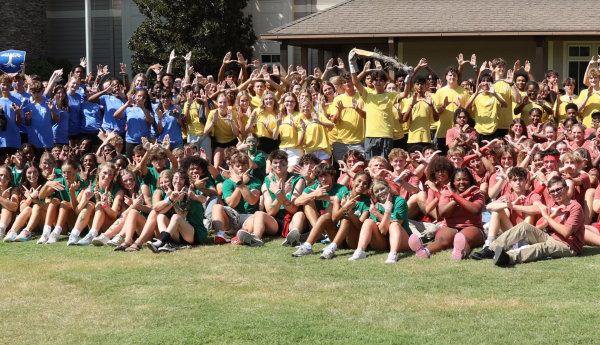Kicking Pay Inequity
USWNT files gender discrimination lawsuit against U.S. Soccer Federation
Photo: Callie Hollis
(Photo on File) Maddie Bishop leads the attack in a regional game against Harding last October.
“[The] USSF has utterly failed to promote gender equality.”
This is the complaint that all 28 members of the current United States Women’s National (Soccer) Team (WNT) have issued in their gender-based discrimination lawsuit against the U.S. Soccer Federation (USSF). The federal class-action lawsuit was filed in the Central Disctrict of California in March and is suing for violations of the Equal Pay Act and Title VII of the Civil Rights Act of 1964.
The lawsuit claims that the members of WNT are paid less than their counterparts on the United States Men’s National Team (MNT). The trial has recently been set to begin on May 5, 2020.
The lawsuit ends a wage discrimination complaint with the Equal Employment Opportunity Commission filed back in March of 2016 by five current and former players: Alex Morgan, Carli Lloyd, Megan Rapinoe, Becky Sauerbrunn, and former goalkeeper Hope Solo. After no progress for three years, the players received “Notices of Rights to Sue” and proceeded to file the lawsuit.
“Despite the fact that [players for the Women’s and Men’s National Teams] are called upon to perform the same job responsibilities… the female players have been consistently paid less money than their male counterparts,” the lawsuit says. “The USSF discriminates against Plaintiffs, and the class that they seek to represent, by paying them less than members of the MNT for substantially equal work and by denying them at least equal playing, training, and travel conditions; equal promotion of their games; equal support and development for their games; and other terms and conditions of employment equal to the MNT.”
The lawsuit includes countless examples of WNT players performing similar duties to those of the MNT – often outperforming them – while being paid far less. The WNT often earns more profit and revenue for the USSF, plays and wins more games, wins more championships, and has higher television ratings.
At the time of the lawsuit’s filing, the women’s team had won three World Cup titles, four Olympic gold medals, three U.S. Olympic Committee Team of the Year Awards, and has been ranked number one internationally for “ten out of the last eleven years,” according to the lawsuit.
“In light of the WNT’s on-field success, Plaintiffs often spend more time practicing for and playing in matches, more time in training camps, more time traveling and more time participating in media sessions, among other duties and responsibilities, than similarly situated MNT players,” states the lawsuit. From 2015 through 2018, the women’s team played nineteen more games than the men’s team.
The WNT has consistently “earned more profit and/or revenue than the MNT,” the lawsuit says, its players’ success even increasing the USSF’s net projections from a $400,000-plus loss to a $17.7 million gain from April 2015 to March 2016 – while being paid less than the men.
The lawsuit states that under the pay structure effective from January 1, 2001 to December 31, 2018, players for the men’s team were paid a minimum of $5,000 regardless of opponent and outcome, and pay could amount to up to $17,625. Players for the women’s team, however, were not paid at all for losses, ties, or wins against teams outside of the FIFA top ten.
“Each of us is extremely proud to wear the United States jersey, and we also take seriously the responsibility that comes with that,” said WNT co-captain Alex Morgan in a statement. “We believe that fighting for gender equality in sports is a part of that responsibility. As players, we deserved to be paid equally for our work, regardless of our gender.”
The conversation around the lawsuit has stretched beyond just pay equality in professional soccer. In an interview on MSNBC’s “The Rachel Maddow Show,” WNT co-captain Megan Rapinoe made clear that for her, it is not just about international soccer players.
“I’m privileged to be a famous person and to be on this team and to be who I am, and if I just stay silent, it seems awfully selfish,” Rapinoe said. “The conversation is not about equal pay anymore. It’s everybody.”
St. George’s Varsity Girls Soccer Co-Captain Caroline Finch agrees that the impact of the lawsuit reaches further than its principal goal.
“Especially [for] younger girls, and even younger boys, seeing these powerful women being respected and being… recognized for their worth is impactful, because a lot of times, young boys and girls don’t see that,” Finch said. “It’s bigger than just soccer, it’s seeing women being given the same recognition as men.”
On a more local level, Finch praises St. George’s for its steps toward athletic equality.
“I think St. George’s is moving in the right direction, just as the professional teams are moving in the right direction,” Finch said. “Women’s sports teams at St. George’s are no longer called ‘Lady Gryphons,’ just as, for example, the US Soccer teams changed their names from the US Women’s Soccer Team and the US Soccer Team to the Women’s and Men’s Soccer Teams. Just the labeling I think has put St. George’s forward in a better direction.”
When asked about the impact of potential outcomes of the lawsuit, Finch was hopeful for the future.
“I think if the [plaintiffs] win, of course the impact will be great, everyone [will be] excited, and if they don’t win, there will be push from society to further this movement in the future,” Finch said. “So many people are invested in this movement now that if this is not won right now, it’s going to be in the near future.”


